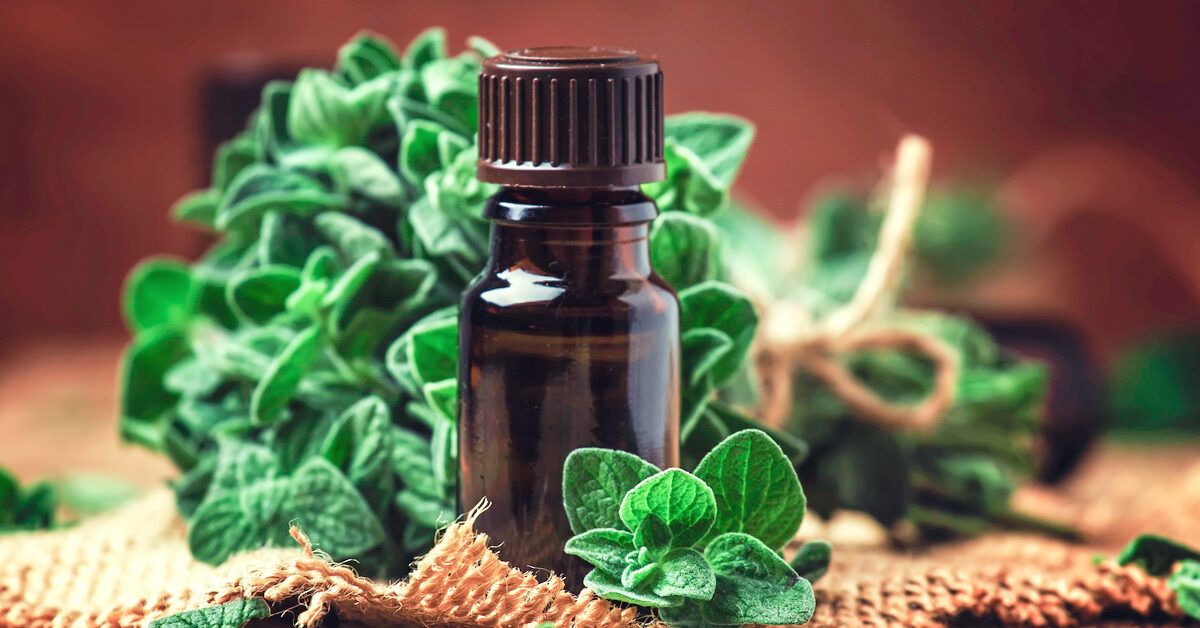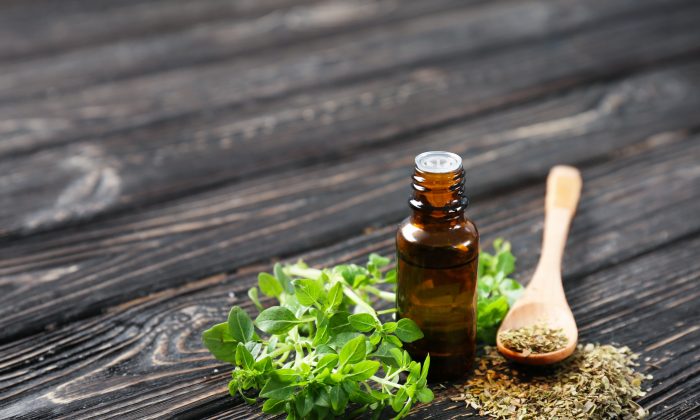China Connection
TB Fanatic
Not a bad overview of Oregano Oil but it has in use for a very long time. As far as I know it can be continue usage at the safe level.
The raw oregano oil must be mix with an oil like olive before being taken
............................................................................................................................................
A 2017 study found that oregano essential oil, especially from the leaves of the oregano plant, has strong antioxidant properties. ... While carvacrol was more effective against certain viruses on its own, oregano oil was more effective against respiratory viruses, such as flu viruses.
..............................................................................................................................................
Oregano Oil for Cold and Flu: Does It Work?
What is oregano oil?
As an herbal supplement, oil of oregano is known for its antiviral, anti-inflammatory, and antioxidant properties. It contains several potentially healing compounds, such as:
Oregano oil is used to treat cold and flu symptoms, but it can be consumed in different forms depending on your preference. It can be purchased as an herbal supplement, tincture, or essential oil.
You can find it at most health food stores as a tincture or softgel capsule. You can also buy it in the form of a highly concentrated aromatic, volatile (tending to evaporate) essential oil for external use and aromatherapy.
Keep reading to learn more about the research behind the benefits of oregano oil for cold and flu symptoms and how to safely use it.
What does the research say?
There have been several recent studies looking at the health benefits of oregano herbal oil, and most of the findings are promising.
A 2017 studyTrusted Source found that oregano essential oil, especially from the leaves of the oregano plant, has strong antioxidant properties. The researchers noted the traditional use of oregano oil in treating fevers and respiratory symptoms, which are both associated with the flu.
Research conducted in 2011Trusted Source found that oregano essential oil can inhibit both human and animal viruses in vitro.
The researchers noted that this action is likely due to carvacrol, one of the main compounds in oregano oil. While carvacrol was more effective against certain viruses on its own, oregano oil was more effective against respiratory viruses, such as flu viruses.
People with upper respiratory infections participating in a 2011 study used a throat spray containing oregano oil as well as diluted eucalyptus, peppermint, and rosemary essential oils. They used it 5 times a day for 3 days.
Compared to those in the placebo group, those who used the spray had reduced symptoms of sore throat, hoarseness, and cough 20 minutes after using it.
However, there wasn’t a major difference in symptoms between the 2 groups after 3 days of treatment. The researchers noted that this might be due to symptoms naturally improving in both groups during those 3 days.
In addition, a small 2013 studyTrusted Source found that oregano oil reduced pain in rats due to its analgesic effects. This suggests that oregano oil might help with more painful flu symptoms, such as body aches or a sore throat, but larger human studies are needed.
Is it safe?
Oregano oil is generally safe to use, but it can have some side effects.
Avoid using it if you’re allergic to mint, sage, basil, or lavender. If you’re allergic to any of these, you’re likely allergic to oregano as well.
Don’t use oregano oil if you’re pregnant or breastfeeding.
Talk to your pediatrician before using it on a child.
Don’t take oregano oil if you have a bleeding disorder or are on any medications that alter clotting of your blood.
How do I use it?
There are several ways to use oregano oil.
If you are using the pure essential oil form, remember to never ingest essential oils. Instead, follow these steps:
You can also shop for an oregano oil tincture, which is an extract and essential oil blend formulated to take orally. Follow the dosage instructions on the bottle.
Alternatively, you can purchase oregano herbal oil in capsule form. Carefully read the dosage instructions on the bottle.
Regardless of why you’re taking oregano oil, make sure you take at least a weeklong break for every 3 weeks of use.
Oregano oil is a powerful substance, so it’s best to start with the smallest possible dose to see how your body reacts. You can slowly increase the amount you take once you see how your body responds.
Just make sure you don’t take more than the recommended amount listed on the package. Also keep in mind that recommended dosages can vary between manufacturers.
The bottom line
Oregano oil has several health benefits that are backed by research, though larger studies are needed to fully understand how it works.
If you find yourself dealing with a cold or the flu, try using oregano herbal oil for relief. Just make sure you don’t go over the recommended dosage.

Medically reviewed by Debra Sullivan, PhD, MSN, RN, CNE, COI on January 28, 2020 — Written by Emily Cronkleton

 www.healthline.com
www.healthline.com
The raw oregano oil must be mix with an oil like olive before being taken
............................................................................................................................................
A 2017 study found that oregano essential oil, especially from the leaves of the oregano plant, has strong antioxidant properties. ... While carvacrol was more effective against certain viruses on its own, oregano oil was more effective against respiratory viruses, such as flu viruses.
..............................................................................................................................................
Oregano Oil for Cold and Flu: Does It Work?
What is oregano oil?
As an herbal supplement, oil of oregano is known for its antiviral, anti-inflammatory, and antioxidant properties. It contains several potentially healing compounds, such as:
- carvacrol
- thymol
- terpinene
Oregano oil is used to treat cold and flu symptoms, but it can be consumed in different forms depending on your preference. It can be purchased as an herbal supplement, tincture, or essential oil.
You can find it at most health food stores as a tincture or softgel capsule. You can also buy it in the form of a highly concentrated aromatic, volatile (tending to evaporate) essential oil for external use and aromatherapy.
Keep reading to learn more about the research behind the benefits of oregano oil for cold and flu symptoms and how to safely use it.
What does the research say?
There have been several recent studies looking at the health benefits of oregano herbal oil, and most of the findings are promising.
A 2017 studyTrusted Source found that oregano essential oil, especially from the leaves of the oregano plant, has strong antioxidant properties. The researchers noted the traditional use of oregano oil in treating fevers and respiratory symptoms, which are both associated with the flu.
Research conducted in 2011Trusted Source found that oregano essential oil can inhibit both human and animal viruses in vitro.
The researchers noted that this action is likely due to carvacrol, one of the main compounds in oregano oil. While carvacrol was more effective against certain viruses on its own, oregano oil was more effective against respiratory viruses, such as flu viruses.
People with upper respiratory infections participating in a 2011 study used a throat spray containing oregano oil as well as diluted eucalyptus, peppermint, and rosemary essential oils. They used it 5 times a day for 3 days.
Compared to those in the placebo group, those who used the spray had reduced symptoms of sore throat, hoarseness, and cough 20 minutes after using it.
However, there wasn’t a major difference in symptoms between the 2 groups after 3 days of treatment. The researchers noted that this might be due to symptoms naturally improving in both groups during those 3 days.
In addition, a small 2013 studyTrusted Source found that oregano oil reduced pain in rats due to its analgesic effects. This suggests that oregano oil might help with more painful flu symptoms, such as body aches or a sore throat, but larger human studies are needed.
Is it safe?
Oregano oil is generally safe to use, but it can have some side effects.
Avoid using it if you’re allergic to mint, sage, basil, or lavender. If you’re allergic to any of these, you’re likely allergic to oregano as well.
Don’t use oregano oil if you’re pregnant or breastfeeding.
Talk to your pediatrician before using it on a child.
Don’t take oregano oil if you have a bleeding disorder or are on any medications that alter clotting of your blood.
Even if you don’t have an allergy, taking oregano oil may cause:Supplements and herbs aren’t closely monitored by the FDA, and there may be issues regarding such attributes as purity, contamination, quality, and strength. Research the brand and be an informed consumer. It’s always wise to talk to your healthcare provider before using any herb, essential oil, or supplement.
- nausea
- vomiting
- diarrhea
- stomach problems
- fatigue
- increased bleeding
- muscle pain
- vertigo
- headache
- difficulty swallowing
- excessive salivation
- inappropriate talkativeness
How do I use it?
There are several ways to use oregano oil.
If you are using the pure essential oil form, remember to never ingest essential oils. Instead, follow these steps:
- add a few drops to a steam diffuser or bowl of hot water
- apply to your skin after adding about five drops to a carrier oil, such as coconut oil
You can also shop for an oregano oil tincture, which is an extract and essential oil blend formulated to take orally. Follow the dosage instructions on the bottle.
Alternatively, you can purchase oregano herbal oil in capsule form. Carefully read the dosage instructions on the bottle.
Regardless of why you’re taking oregano oil, make sure you take at least a weeklong break for every 3 weeks of use.
Oregano oil is a powerful substance, so it’s best to start with the smallest possible dose to see how your body reacts. You can slowly increase the amount you take once you see how your body responds.
Just make sure you don’t take more than the recommended amount listed on the package. Also keep in mind that recommended dosages can vary between manufacturers.
The bottom line
Oregano oil has several health benefits that are backed by research, though larger studies are needed to fully understand how it works.
If you find yourself dealing with a cold or the flu, try using oregano herbal oil for relief. Just make sure you don’t go over the recommended dosage.

Medically reviewed by Debra Sullivan, PhD, MSN, RN, CNE, COI on January 28, 2020 — Written by Emily Cronkleton

Does Oregano Oil Work for Cold and Flu?
Trying to beat a cold or the flu? Oregano oil might help. Learn what the research says and how to use it safely.







